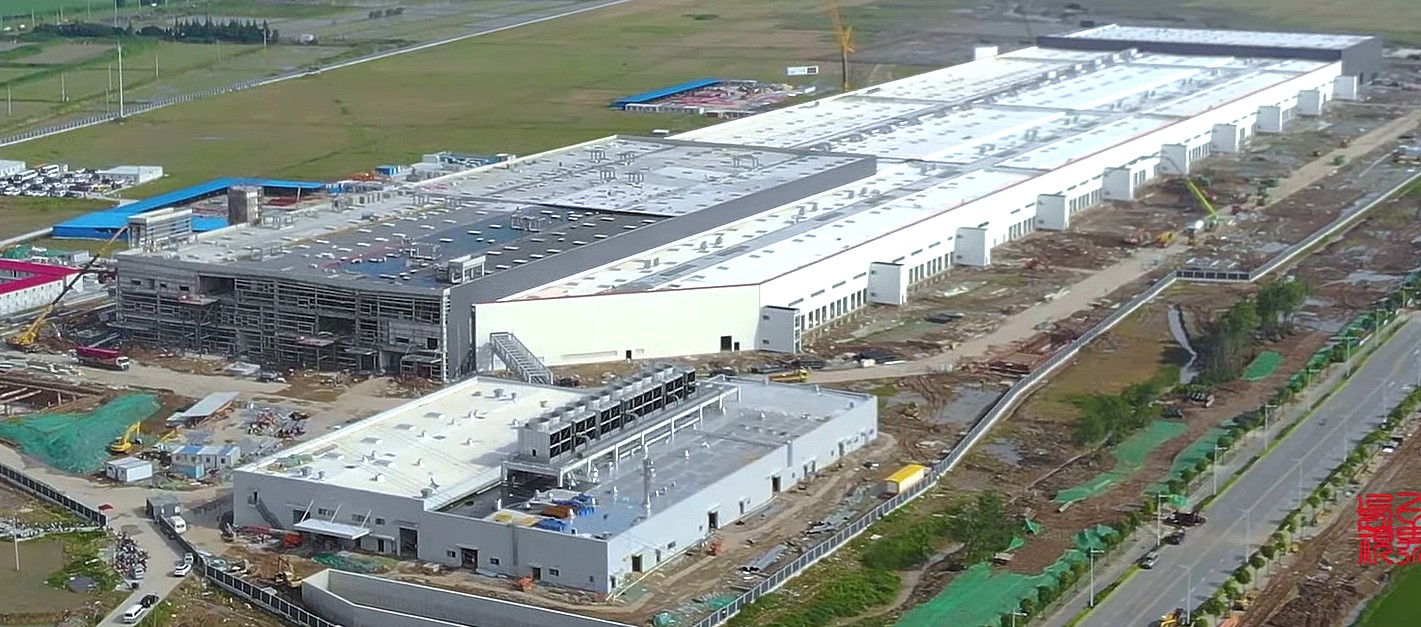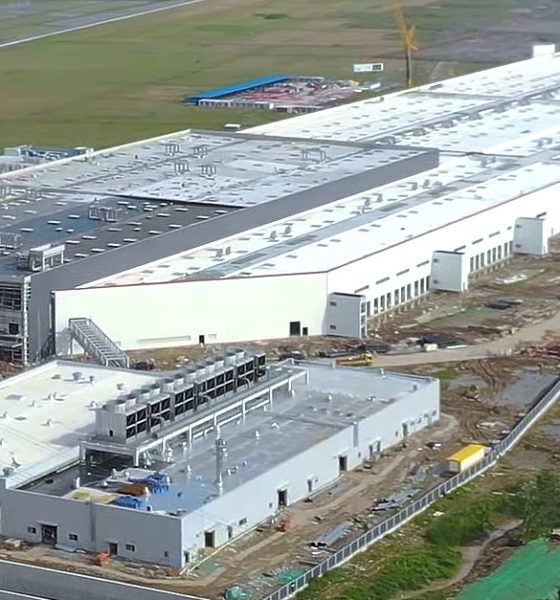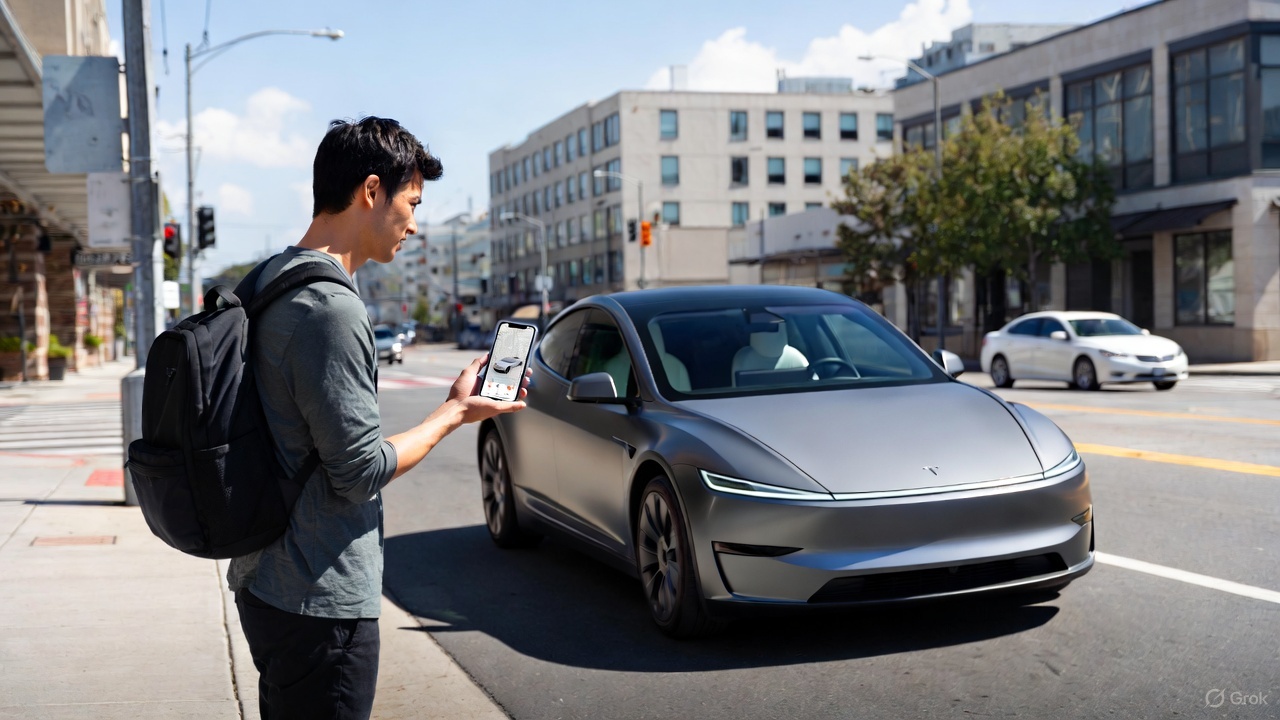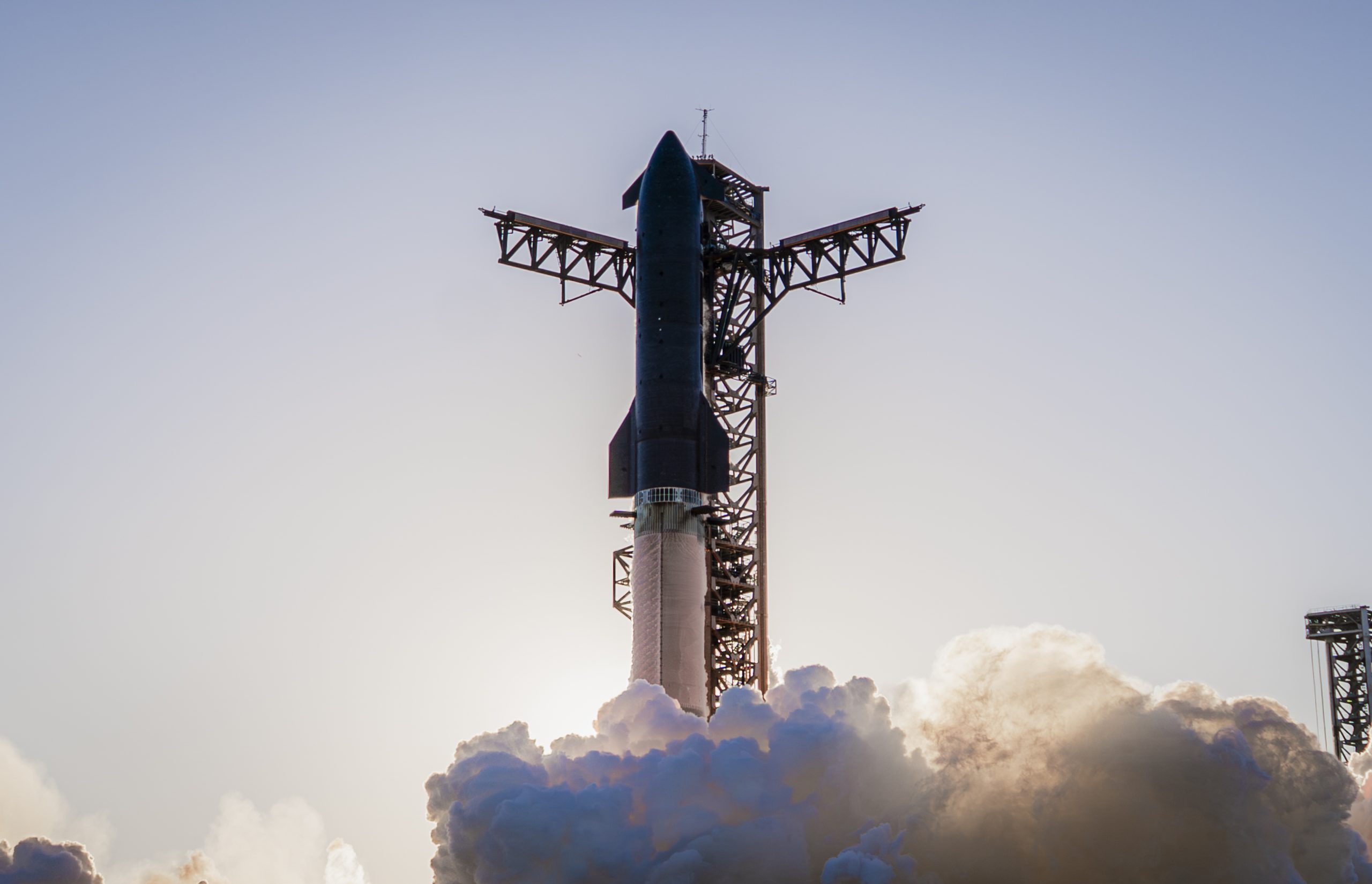

News
Tesla Gigafactory 3 buildout continues at rapid pace amid ongoing hiring ramp
To say that Tesla’s Gigafactory 3 in Shanghai is being built at a rapid pace is an understatement. Since the first pillar of the general assembly building was installed in the middle of March, the entire Gigafactory 3 complex has undergone a drastic transformation. The site was but a muddy field in January, but this July, it has become a notable industrial area.
A recent flyover from Tesla enthusiast and drone operator Wuwa Vision (烏瓦) on YouTube has revealed some of the most recent developments in the Gigafactory 3 site. Much of the work in the site is currently being done inside the main factory, but some operations is still ongoing in the facility’s exterior, which is now being refined. Images from the flyover show workers paving the roof with concrete, while finishings in other sections of the facility are being done.
Reports from local media have also mentioned that Tesla is continuing its hiring efforts for Gigafactory 3, which is expected to be operational by the end of this year. Over the course of several job fairs, Tesla has reportedly hired a notable number of workers, including those from other automakers such as Volvo and General Motors. With these efforts, Tesla is building up a workforce that is skilled and experienced in China’s auto industry.
The multiple job fairs that Tesla has been holding for Gigafactory 3 suggest that the electric car maker is expecting the facility to start operations sooner rather than later. Elon Musk has stated that he expects the facility to start manufacturing the Model 3 sometime before the end of the year, though local reports from China have pointed to the possibility of production activities beginning as early as September.
Other sections of the Gigafactory 3 complex are also being built at an incredibly fast pace. A substation, which is expected to be completed by September, is currently being built southwest of Gigafactory 3’s general assembly building. Structures that appear to be dormitories for employees and assembly areas for events have also been set up on the site.
For his part, Ma Chunlei, Deputy Secretary-General of Shanghai Municipal People’s Government and Director of Shanghai Development and Reform Commission, expects Gigafactory 3 to produce 3,000 vehicles per week when it starts hitting volume production, possibly early next year. The Shanghai official’s target timeframe seems quite optimistic considering that Tesla, when it opened pre-orders for the Made-in-China Model 3 at the end of May, quoted an estimated 6-10 months before the first deliveries of the all-electric sedan will begin.
Watch a recent flyover of Tesla’s Gigafactory 3 complex in the video below.

News
Tesla Robotaxi ride-hailing without a Safety Monitor proves to be difficult

Tesla Robotaxi ride-hailing without a Safety Monitor is proving to be a difficult task, according to some riders who made the journey to Austin to attempt to ride in one of its vehicles that has zero supervision.
Last week, Tesla officially removed Safety Monitors from some — not all — of its Robotaxi vehicles in Austin, Texas, answering skeptics who said the vehicles still needed supervision to operate safely and efficiently.
BREAKING: Tesla launches public Robotaxi rides in Austin with no Safety Monitor
Tesla aimed to remove Safety Monitors before the end of 2025, and it did, but only to company employees. It made the move last week to open the rides to the public, just a couple of weeks late to its original goal, but the accomplishment was impressive, nonetheless.
However, the small number of Robotaxis that are operating without Safety Monitors has proven difficult to hail for a ride. David Moss, who has gained notoriety recently as the person who has traveled over 10,000 miles in his Tesla on Full Self-Driving v14 without any interventions, made it to Austin last week.
He has tried to get a ride in a Safety Monitor-less Robotaxi for the better part of four days, and after 38 attempts, he still has yet to grab one:
Wow just wow!
It’s 8:30PM, 29° out ice storm hailing & Tesla Robotaxi service has turned back on!
Waymo is offline & vast majority of humans are home in the storm
Ride 38 was still supervised but by far most impressive yet pic.twitter.com/1aUnJkcYm8
— David Moss (@DavidMoss) January 25, 2026
Tesla said last week that it was rolling out a controlled test of the Safety Monitor-less Robotaxis. Ashok Elluswamy, who heads the AI program at Tesla, confirmed that the company was “starting with a few unsupervised vehicles mixed in with the broader Robotaxi fleet with Safety Monitors,” and that “the ratio will increase over time.”
This is a good strategy that prioritizes safety and keeps the company’s controlled rollout at the forefront of the Robotaxi rollout.
However, it will be interesting to see how quickly the company can scale these completely monitor-less rides. It has proven to be extremely difficult to get one, but that is understandable considering only a handful of the cars in the entire Austin fleet are operating with no supervision within the vehicle.
News
Tesla gives its biggest hint that Full Self-Driving in Europe is imminent

Tesla has given its biggest hint that Full Self-Driving in Europe is imminent, as a new feature seems to show that the company is preparing for frequent border crossings.
Tesla owner and influencer BLKMDL3, also known as Zack, recently took his Tesla to the border of California and Mexico at Tijuana, and at the international crossing, Full Self-Driving showed an interesting message: “Upcoming country border — FSD (Supervised) will become unavailable.”
FSD now shows a new message when approaching an international border crossing.
Stayed engaged the whole way as we crossed the border and worked great in Mexico! pic.twitter.com/bDzyLnyq0g
— Zack (@BLKMDL3) January 26, 2026
Due to regulatory approvals, once a Tesla operating on Full Self-Driving enters a new country, it is required to comply with the laws and regulations that are applicable to that territory. Even if legal, it seems Tesla will shut off FSD temporarily, confirming it is in a location where operation is approved.
This is something that will be extremely important in Europe, as crossing borders there is like crossing states in the U.S.; it’s pretty frequent compared to life in America, Canada, and Mexico.
Tesla has been working to get FSD approved in Europe for several years, and it has been getting close to being able to offer it to owners on the continent. However, it is still working through a lot of the red tape that is necessary for European regulators to approve use of the system on their continent.
This feature seems to be one that would be extremely useful in Europe, considering the fact that crossing borders into other countries is much more frequent than here in the U.S., and would cater to an area where approvals would differ.
Tesla has been testing FSD in Spain, France, England, and other European countries, and plans to continue expanding this effort. European owners have been fighting for a very long time to utilize the functionality, but the red tape has been the biggest bottleneck in the process.
Tesla Europe builds momentum with expanding FSD demos and regional launches
Tesla operates Full Self-Driving in the United States, China, Canada, Mexico, Puerto Rico, Australia, New Zealand, and South Korea.
Elon Musk
SpaceX Starship V3 gets launch date update from Elon Musk
The first flight of Starship Version 3 and its new Raptor V3 engines could happen as early as March.

Elon Musk has announced that SpaceX’s next Starship launch, Flight 12, is expected in about six weeks. This suggests that the first flight of Starship Version 3 and its new Raptor V3 engines could happen as early as March.
In a post on X, Elon Musk stated that the next Starship launch is in six weeks. He accompanied his announcement with a photo that seemed to have been taken when Starship’s upper stage was just about to separate from the Super Heavy Booster. Musk did not state whether SpaceX will attempt to catch the Super Heavy Booster during the upcoming flight.
The upcoming flight will mark the debut of Starship V3. The upgraded design includes the new Raptor V3 engine, which is expected to have nearly twice the thrust of the original Raptor 1, at a fraction of the cost and with significantly reduced weight. The Starship V3 platform is also expected to be optimized for manufacturability.
The Starship V3 Flight 12 launch timeline comes as SpaceX pursues an aggressive development cadence for the fully reusable launch system. Previous iterations of Starship have racked up a mixed but notable string of test flights, including multiple integrated flight tests in 2025.
Interestingly enough, SpaceX has teased an aggressive timeframe for Starship V3’s first flight. Way back in late November, SpaceX noted on X that it will be aiming to launch Starship V3’s maiden flight in the first quarter of 2026. This was despite setbacks like a structural anomaly on the first V3 booster during ground testing.
“Starship’s twelfth flight test remains targeted for the first quarter of 2026,” the company wrote in its post on X.








